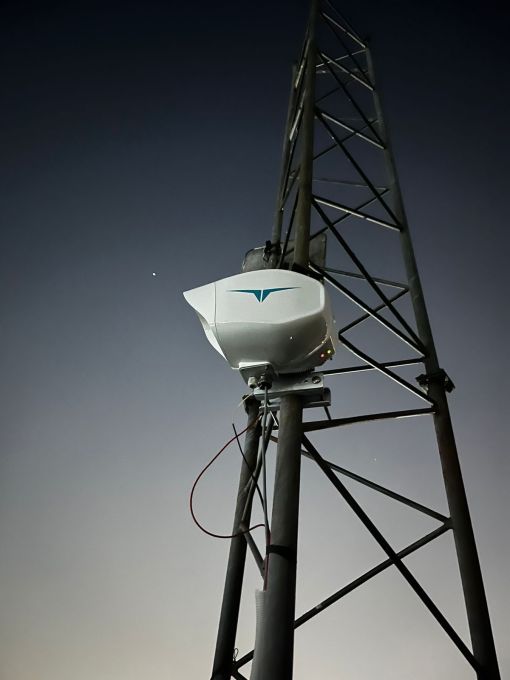
Transcelestial team members installing CENTAURI device on a building
Transcelestial is on a mission to make the internet more accessible by building a network of shoebox-sized devices that send lasers to one another, creating a fiber-like network. Today, the Singaporean-based startup announced it has raised $10 million, with the goal of expanding its wireless laser communications system in Indonesia, India, the Philippines, Malaysia, Singapore and the United States. Eventually, it has its eyes on space, deploying its wireless fiber optics from orbit.
The company’s A2 round was led by aerospace venture firm Airbus Ventures, with participation from Kickstart Ventures, Genesis Alternative Ventures, Wavemaker, Cap Vista and Seeds Capital, along with returning investor In-Q-Tel. This brings Transcelestial’s total raised since it was founded in 2016 to $24 million. Some of its previous backers include EDBI, Entrepreneur First, 500 Global, SparkLabs Global Ventures and Michael Seibel.
CEO Rohit Jha told TechCrunch that he and co-founder Mohammad Danesh believe “connectivity is a human right” and improving internet connections for at least a billion people drives all their commercial and technical decisions.
The two say current internet infrastructure is the main reason so many people lack reliable internet access. Undersea cables, for example, are expensive to build and only link two points. Terrestrial long-haul networks gives Tier 1 cities good coverage, but leave smaller cities and towns behind. Middle-mile and last-mile distribution is often costly, and runs into right-of-way issues.
Transcelestial’s laser communications systems does away with underground cables, which are expensive to install and maintain, and radio-frequency based devices, with their complicated spectrum licensing regulations. As a result, Jha said Transcelestial can offer a significantly lower cost per bit option. Transcelestial’s shoeboxed-sized devices, called CENTAURI, have already been deployed in South and South East Asian markets.

A CENTAURI installation
The startup recently proved that its laser technology can deliver 5G connectivity during a demonstration at the University of Technology Sydney. Its next stop is space: Transcelestial is working on bringing its technology to a low-earth-orbit (LEO) constellation, with the goal of deploying its wireless fiber optics from orbit directly into cities and downs.
In the meantime, it’s planning to move beyond its markets in Asia and start expanding early market access in the U.S., where research by the Pew Trust found that 27% of people in rural areas and 2% of those in cities lacked readily available internet connections. Transcelestial plans to enter the U.S. by exploring collaborations with the government, enterprise and telecoms over the next 12 months. Jha said the company is already working under stealth with a few ISPs and a major enterprise cloud and data center company on the West Coast.
Part of Transcelestial’s new funding will be used to prepare Terabit Factory, its production facility, against uncertainties in the supply chain. The facility has the capacity to manufacture up to 2,4000 CENTAURI devices annually, which Trancelestial says is the largest deployment volume of any lasercomms producer globally.
In a statement about the funding, In-Q-Tel managing director Clayton Williams said, “Transcelestial’s laser communications platform CENTAURI is a best in class solution for low cost, high bandwidth terrestrial communications. We are excited to help expand this capability to enable a space-based data backhaul for secure point-to-point communications from the U.S. and anywhere on earth.”
Singapore-based Transcelestial uses lasers to build affordable internet networks by Catherine Shu originally published on TechCrunch
